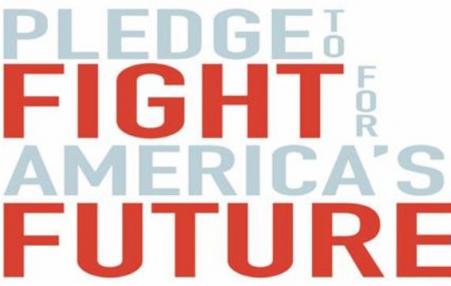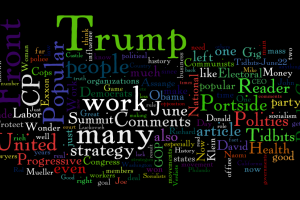Dispatches From the Culture Wars - December 4, 2018
Portside
 A popular narrative today is that we live in a country which is deeply divided. And the Democratic Party, we are told, is nearly as split as the nation itself. But chatter in the press and social media may overlook some fundamental points of agreement about changes we need to make in our economy. That’s the premise behind a new pledge, the “Agenda for Good Jobs, Sustainable Prosperity, and Economic Justice,” that has been signed by more than 70 prominent progressives.
A popular narrative today is that we live in a country which is deeply divided. And the Democratic Party, we are told, is nearly as split as the nation itself. But chatter in the press and social media may overlook some fundamental points of agreement about changes we need to make in our economy. That’s the premise behind a new pledge, the “Agenda for Good Jobs, Sustainable Prosperity, and Economic Justice,” that has been signed by more than 70 prominent progressives.
 Reader Comments: GOP's Secret Health Bill - not popular in Red states; Across the Country, Verdicts Protect Cops Who Kill; Naomi Klein; Mueller's Trump Investigation - Follow the Money; Readers respond to various Portside posts - Progressive Electoral Politics, People's Summit, Socialists and Electoral Politics; On the United Front; Gig Work; and more...
Reader Comments: GOP's Secret Health Bill - not popular in Red states; Across the Country, Verdicts Protect Cops Who Kill; Naomi Klein; Mueller's Trump Investigation - Follow the Money; Readers respond to various Portside posts - Progressive Electoral Politics, People's Summit, Socialists and Electoral Politics; On the United Front; Gig Work; and more...
Spread the word